By nature of their profession, first responders see more trauma than other citizens. The exposure to trauma takes its toll, but a stigma about asking for needed help exists among law enforcement officers, firefighters, dispatchers, emergency medical technicians, crime scene investigators, and other first responders. Vince Van Hasselt, Ph.D., is working to overcome that challenge through the First Responder Research and Training Program at the NSU College of Psychology.
“It’s estimated that at least 25 percent of first responders suffer from post-traumatic stress disorder (PTSD),” Van Hasselt said. “Now, you may say that means maybe 70 or 75 percent don’t. But when you look at civilian levels of problems like PTSD, substance abuse, anxiety, and depression, they’re almost consistently at or around 5 or 6 percent.”

Vince Van Hasselt, Ph.D.
A member of the NSU faculty team for more than 30 years, Van Hasselt joined the staff because NSU was very supportive of the College of Psychology and wanted faculty members who were willing to teach and conduct research. When he began working with first responders as a consultant, his audience was appreciative of his effort but also informed him that unless he did the job, he wouldn’t understand it.
“Frankly, I got tired of hearing that,” Van Hasselt said. “I thought, let me go through the academy. Let me get certified. They were right. I tell my students they don’t have to become a police officer or a firefighter to work with them. But they sure better get a pretty good understanding of the nature of their jobs.”
After graduating from the police academy, Van Hasselt became a part-time officer of the City of Plantation Police Department while maintaining his full-time job at NSU. His on-the-job experience opened up possibilities in terms of mental health applications with law enforcement. Over the years, his work expanded to include fire rescue personnel, crime scene investigators, emergency communication operators, as well as detention deputies.
The first responder program focuses on two primary areas—assessment and prevention. NSU offers behavioral health training to help first responders prevent major mental health issues—anxiety, depression, substance use, sleep problems, post-traumatic stress disorder, and suicide risk.
Van Hasselt’s First Responder Research and Training Program also offers an Optimizing Performance Program, with a focus on sports-oriented diet, nutrition, health, and exercise. There is also a research component that studies all first responders. Each and every one of them has significant trauma exposure, putting them at particularly high risk for mental health problems. What’s traumatic for a police officer or a firefighter is going to be different from a crime scene investigator or dispatcher.
“Part of our goal is to educate and encourage first responders to feel more comfortable opening up, seek help when necessary, and to fight back against that culture and stigma,” Van Hasselt said.
Students in the College of Psychology play a large role in the first responder program. Doctoral candidates in clinical psychology serve as trainers in the behavioral health and peer support workshops. They learn how to engage the first responders and not rely solely on statistics, numbers, and PowerPoint slides. Students are encouraged to participate in ride-a-longs with police officers, fire rescue personnel, and EMS trucks to interact with first responders and better understand their jobs. Stress management training—the ability to debrief first responders after a critical incident such as the death of a child or a serious injury in the line of duty—is another component students experience.
Van Hasselt’s First Responder Research and Training Program also collaborates with agencies and organizations to provide peer support and conduct research opportunities, including a recent effort with the Broward County Sheriff’s Office that offered peer support training to corrections officers. The First Responder Program also completed a recent project with the U.S. Marshal Service on the National Wellness Survey for Public Safety Personnel. That effort involved 14 different first responder groups, including professional and volunteer firefighters, wildlife firefighters, dispatchers, homicide detectives, and EMS.
“I’m very grateful for my experience at NSU,” Van Hasselt said. “There’s always been a lot of support and encouragement for the work I’m doing.”
For more information on how you can support the First Responder Research and Training Program at Nova Southeastern University, contact Susanne Marshall, executive director of development, at (833) 310-2112 or msusanne@nova.edu.
Posted 08/27/23





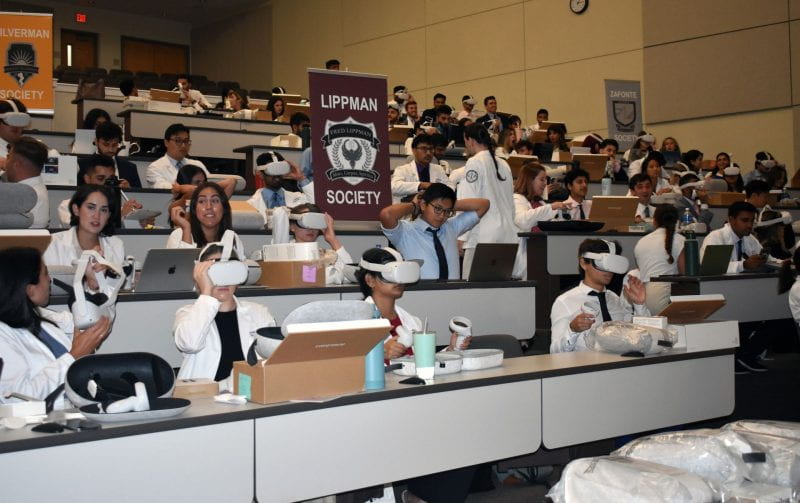
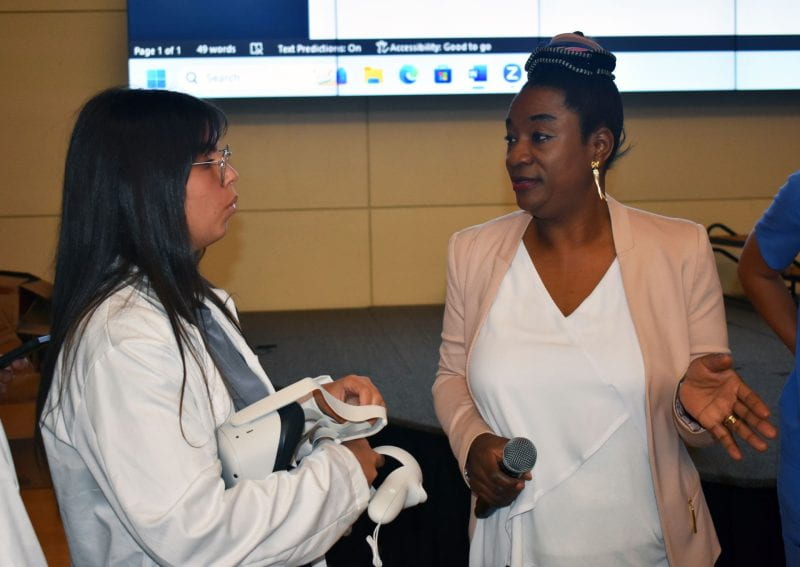
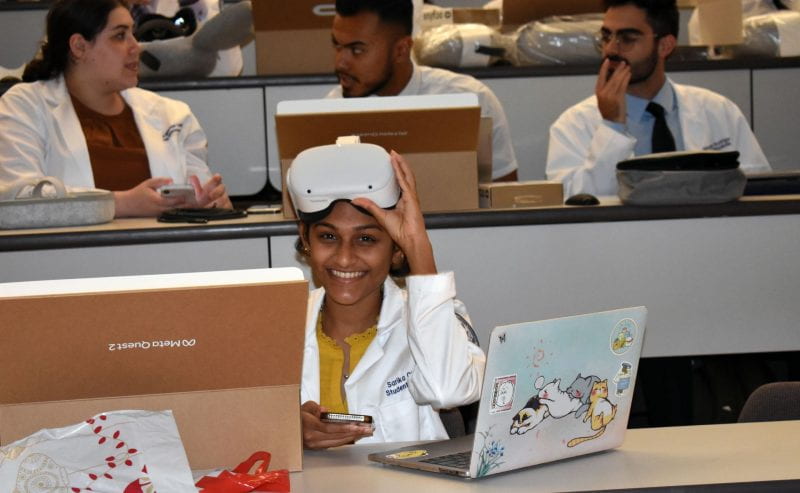 What are some of the other efforts you’re involved in to spread the wealth of immersive technology?
What are some of the other efforts you’re involved in to spread the wealth of immersive technology?
 Mary Hope Schwoebel, Ph.D., faculty in the Department of Conflict Resolution Studies (DCRS) in the Halmos College of Arts and Sciences and the Guy Harvey Oceanographic Research Center (HCAS), facilitated an organizational development, capacity building, and strategic planning meeting for Maple Microdevelopment. Maple is headquartered in Oregon and works in Uganda, Chile, and Oregon, with marginalized communities. Schwoebel serves on the board.
Mary Hope Schwoebel, Ph.D., faculty in the Department of Conflict Resolution Studies (DCRS) in the Halmos College of Arts and Sciences and the Guy Harvey Oceanographic Research Center (HCAS), facilitated an organizational development, capacity building, and strategic planning meeting for Maple Microdevelopment. Maple is headquartered in Oregon and works in Uganda, Chile, and Oregon, with marginalized communities. Schwoebel serves on the board.









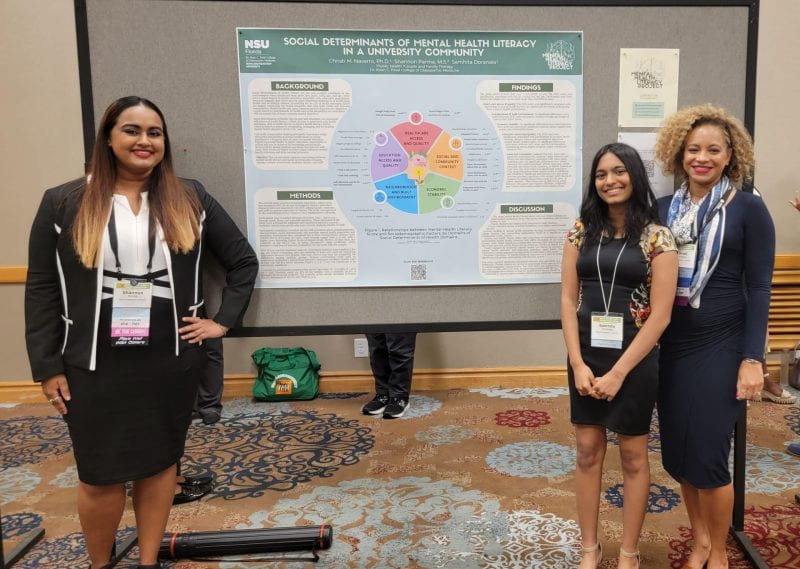
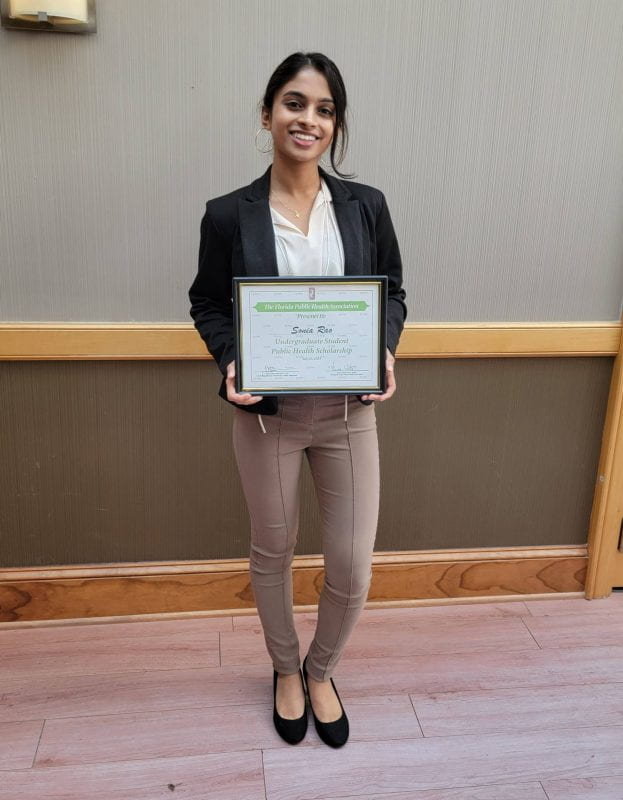
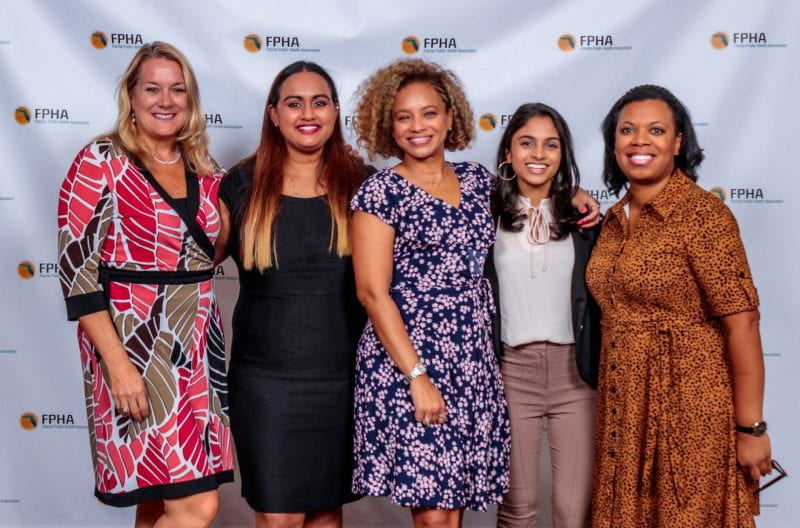




 Word of Mouth has helped Shark Speak, the Fischler Academy’s English Language program, to triple in the past six months. The goals of the program are to provide Fischler Academy students with a true teaching experience before they graduate and to offer a free service to families in the community that want to learn English to enhance their lives.
Word of Mouth has helped Shark Speak, the Fischler Academy’s English Language program, to triple in the past six months. The goals of the program are to provide Fischler Academy students with a true teaching experience before they graduate and to offer a free service to families in the community that want to learn English to enhance their lives.